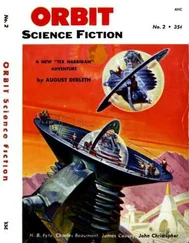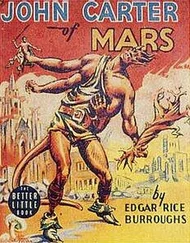Philip Dick - Mary And The Giant
Здесь есть возможность читать онлайн «Philip Dick - Mary And The Giant» весь текст электронной книги совершенно бесплатно (целиком полную версию без сокращений). В некоторых случаях можно слушать аудио, скачать через торрент в формате fb2 и присутствует краткое содержание. Жанр: Фантастика и фэнтези, на английском языке. Описание произведения, (предисловие) а так же отзывы посетителей доступны на портале библиотеки ЛибКат.
- Название:Mary And The Giant
- Автор:
- Жанр:
- Год:неизвестен
- ISBN:нет данных
- Рейтинг книги:4 / 5. Голосов: 1
-
Избранное:Добавить в избранное
- Отзывы:
-
Ваша оценка:
- 80
- 1
- 2
- 3
- 4
- 5
Mary And The Giant: краткое содержание, описание и аннотация
Предлагаем к чтению аннотацию, описание, краткое содержание или предисловие (зависит от того, что написал сам автор книги «Mary And The Giant»). Если вы не нашли необходимую информацию о книге — напишите в комментариях, мы постараемся отыскать её.
Mary And The Giant — читать онлайн бесплатно полную книгу (весь текст) целиком
Ниже представлен текст книги, разбитый по страницам. Система сохранения места последней прочитанной страницы, позволяет с удобством читать онлайн бесплатно книгу «Mary And The Giant», без необходимости каждый раз заново искать на чём Вы остановились. Поставьте закладку, и сможете в любой момент перейти на страницу, на которой закончили чтение.
Интервал:
Закладка:
"Did you belong to the Baptist Church, too?"
Tweany laughed tolerantly. "No, of course not."
"Where were you born?"
"Here in California. I've made California my permanent home. California is a rich state ... it has boundless possibilities." To certify his point, he indicated his coat sleeve. "This suit was tailored for me personally. Designed and fitted by an expert firm in Los Angeles." His fingers strolled over his silk hand-painted necktie. "Clothes are important."
"Why?"
"People can tell you have taste. Clothes are the first thing people notice. As a woman you must be aware of that."
"I suppose so." But she didn't care; clothes, to her, were a civic duty interwoven with cleanliness and posture.
"It's a nice evening," Tweany observed. He had got around to the street side of her, a gesture of gentlemanly alertness. "We have excellent weather here in California."
"Have you been in other states?"
"Of course."
Mary Anne said: "I wish I could travel."
"When you've seen the various big cities you'll know one fundamental thing. They're all alike."
She accepted his words, but the longing was untouched. "I'd like to go somewhere, to some better place." That was the most she could summon; the idea was no clearer. "What would be a better place? Name a real nice place, where the people are nice."
"New York has its charms."
"Are people nice, there?"
"New York has some of the finest museums and opera houses in the world. The people are cultured."
"I see."
Guiding the girl from the pavement, Tweany said: "This is it. My house." His expansiveness soured as the old house loomed up before them. "Not much to look at, but ... good music lacks commercial appeal. A person has to choose between riches and artistic integrity."
A dark outside staircase led from the yard to the third floor. Mary Anne felt her way through the gloom; ahead of her was Tweany and to her left was the house itself. A rain barrel glided by; it was filled with soaked and decomposing newspapers. Next came a line of rusting oil drums, and then the steps. Under her feet the wood groaned and gave; she clung to the banister and stayed close behind Tweany.
The apartment was a blur of shadows as Tweany led her down the hall to the kitchen. She gazed around her in wonder; she was seeing a vast clutter of furniture and shapes, nothing distinct, nothing she could properly make out. And then the light was on.
"Excuse things," Tweany murmured. He left her standing in the kitchen as he prowled, tomcat-wise, from room to room. His possessions seemed to be safe: nobody had stolen his shirts; nobody had ruffled his drapes; nobody had drunk his whiskey.
In the kitchen a slight pool of water shone; the linoleum was damp with evidence of the catastrophe. But the heater had been repaired and the mess mopped up.
"Fine," Tweany said. "They did a good job."
Subdued, aware now that her alarm had been wasted, Mary Anne padded here and there, examining bookcases, peering out of windows. The apartment was very high up; she could see across town. Along the horizon ran a series of clear yellow lights.
"What's those lights?" she asked Tweany.
He was indifferent. "A road, maybe."
Mary Anne breathed in the faintly musty scent of the apartment. "You have an interesting place. I've never seen a place like this. I'm still living at home with my parents. This gives me a lot of ideas for my own pad ... you know?"
Lighting a cigarette, Tweany said: "Well, I was right."
"I guess the plumber came."
"Nothing was the matter after all."
"I'm sorry," she said, feeling uncertain of herself. "I was thinking about the people downstairs. I read an ad, once. An insurance company ad about a hot water heater that exploded."
"Might as well take off your coat, now that you're here."
She did so, pushing it over the arm of a chair. "I guess I got you away from the Wren for nothing." Hands in the back pockets of her jeans, she returned to the window.
"Beer?"
"Okay." She nodded. "Thanks."
"Eastern beer." Tweany filled a glass for her. "Sit down."
She sat, holding the glass awkwardly. It was cold and damp with drops of collected moisture.
"You don't even know if there are any people downstairs," Tweany said. He had made a point and he intended to develop it. "What makes you think there's somebody downstairs?"
Staring at the floor Mary Anne murmured: "I don't know. I just thought about it."
Tweany settled himself on the edge of a heaped table; he was now located well above her, in a position of authority. The girl seemed quite small in comparison to him, and quite young. In her jeans and cotton shirt she might have been a teenager.
"How old are you?" Tweany demanded.
Her lips barely moved. "Twenty."
"You're just a little girl."
It was so. She felt like a little girl, too; she could sense his eyes fastened mockingly on her. She was, she realized, about to undergo the ordeal of a lecture. She was going to be reprimanded.
"You got to grow up," Tweany said. "You got a lot of things to learn."
Mary Anne roused herself. "For cripe's sake, don't I know it? I want to learn things."
"You live here in town?"
"Naturally," she said, with bitterness. "You go to school?"
"No. I work in a lousy broken-down chrome furniture factory."
"Doing what?"
"Stenographer."
"Do you like it?"
"No."
Tweany contemplated her. "Do you have talent?"
"What do you mean?"
"You should do something creative."
"I just want to go somewhere where I can be with people and they won't let me down."
Tweany went over and turned on the radio. The sound of Sarah Vaughan drifted out and into the living room. "You've been dealt some hard knocks," he said, returning to his vantage point.
"I don't know. I haven't had it so bad." She sipped her beer. "Why does eastern beer cost more than western?"
"Because it's finer."
"I thought maybe it was the freight cost."
"Did you?" His great contemptuous grin reappeared.
"See, I've never had a chance to find things out. Where do you find out things like that?"
"A lifetime of broad experience. A cultivated taste is acquired gradually over the years. To some people eastern beer and western beer taste exactly alike."
Mary Anne didn't like beer of any kind. Dutifully she sipped at her glass, wishing, in a wan sort of way, that she was older, that she had seen more and done more. She was aware of her ordinariness in comparison with Carleton Tweany.
"How does it feel to be a singer?" she asked.
"In art," Tweany told her, "there's a spiritual satisfaction that goes beyond material success. The American society is only interested in money. It's shallow."
"Sing something for me," Mary Anne said suddenly. "I mean," she murmured, "I like to hear you."
"Such as?" He raised an eyebrow.
"Sing 'Water Boy.'" She smiled at him. "I like that ... you sang it at the Wren, one night."
"It's a favorite of yours, then?"
"We sang it once in grammar school assembly, years ago." Her thoughts eddied back to her earlier life, when she, in scotch-plaid skirt and middy blouse, had trooped as part of an obedient line from one classroom to another. Crayon drawings, current events, air raid drills during the war ...
"That was better," she decided. "During the war. Why isn't it like that now?"
"What war?"
"With the Nazis and the Japs. Were you in that?"
"I served in the Pacific."
"Doing what?" She was instantly curious. "Hospital attendant."
"Is it fun to work in a hospital? How'd you get to do it?"
"I signed up." His activity in the war had never ranked high in his own estimation; he had come out as he had gone in: a private earning twenty-one dollars a month.
Читать дальшеИнтервал:
Закладка:
Похожие книги на «Mary And The Giant»
Представляем Вашему вниманию похожие книги на «Mary And The Giant» списком для выбора. Мы отобрали схожую по названию и смыслу литературу в надежде предоставить читателям больше вариантов отыскать новые, интересные, ещё непрочитанные произведения.
Обсуждение, отзывы о книге «Mary And The Giant» и просто собственные мнения читателей. Оставьте ваши комментарии, напишите, что Вы думаете о произведении, его смысле или главных героях. Укажите что конкретно понравилось, а что нет, и почему Вы так считаете.










